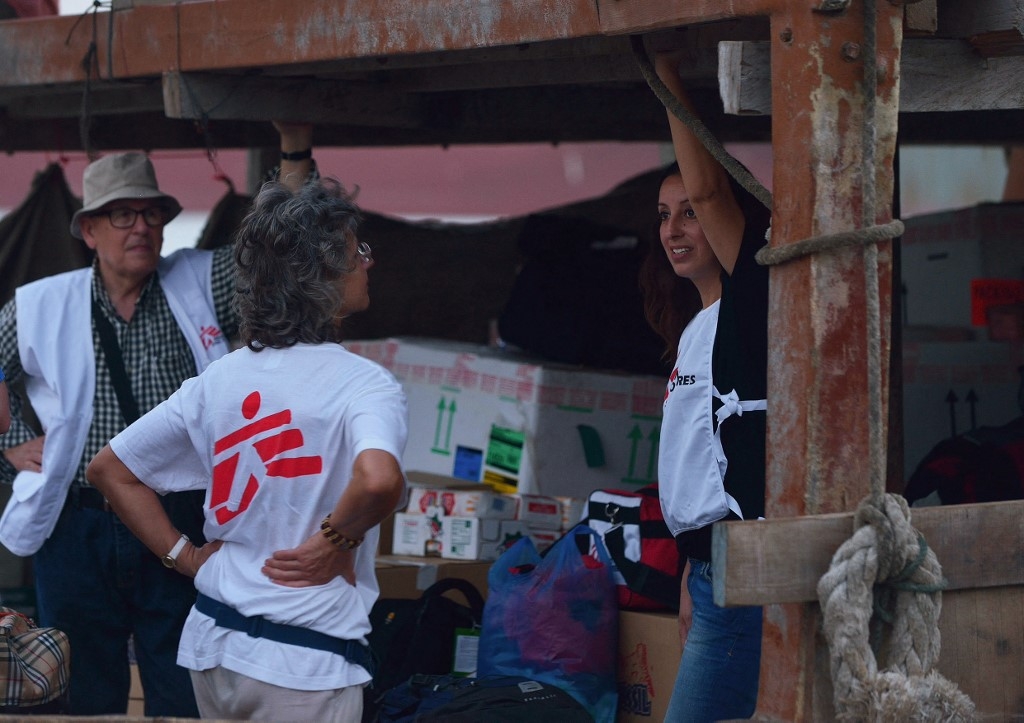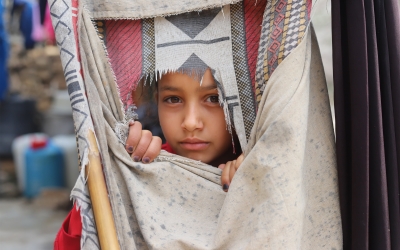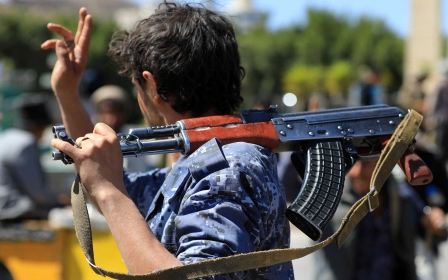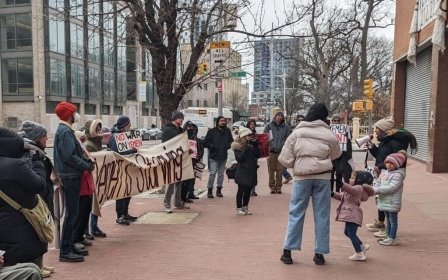Yemen war: Two foreign Doctors Without Borders workers kidnapped

An armed group has kidnapped two foreigners working with Doctors Without Borders (MSF) in Yemen's east, a government source said Sunday, as the charity confirmed it had "lost contact" with some staff.
Over the years a number of foreigners have been abducted in Yemen by the country's heavily armed tribes and other groups. Iran-backed Houthi rebels, fighting a seven-year war with the government, have detained several Westerners in the past, but most were later released.
New MEE newsletter: Jerusalem Dispatch
Sign up to get the latest insights and analysis on Israel-Palestine, alongside Turkey Unpacked and other MEE newsletters
"An armed group kidnapped two MSF workers, one a German national and the other Mexican, in Hadramawt," a Yemeni interior ministry source told AFP, adding that a "military campaign" was underway to track down the kidnappers.
Hadramawt is a large Yemeni province under the control of the internationally recognised government.
MSF on Sunday confirmed that it had "lost contact with some of our staff in Yemen".
"Out of concern for the safety of our colleagues we cannot share more details at this point," the medical aid group told AFP.
Last month, the United Nations said five of its staff members were abducted in the southern province of Abyan while returning to the port city of Aden "after having completed a field mission".
Al-Qaeda's Yemen branch - al-Qaeda in the Arabian Peninsula (AQAP) - and militants loyal to the Islamic State (IS) group, have thrived in the chaos of Yemen's civil war.
The conflict began in 2014 after Houthi rebels seized the capital Sanaa and continued advancing. A Saudi-led military coalition intervened to prop up the government the following year.
The UN has estimated the war killed 377,000 people by the end of 2021, both directly and indirectly through hunger and disease while millions have been displaced, in what it calls the world's worst humanitarian crisis.
Middle East Eye delivers independent and unrivalled coverage and analysis of the Middle East, North Africa and beyond. To learn more about republishing this content and the associated fees, please fill out this form. More about MEE can be found here.





